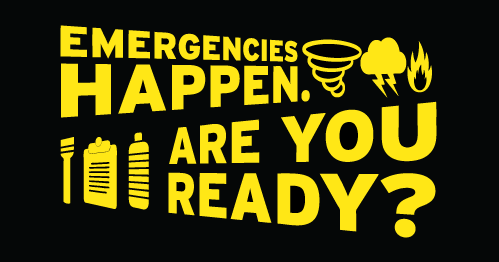Shubh Shubh Bolo, is a common answer that you hear from people when you ask such question. But It’s not about thinking negatively, this is practical. Even after taking precautions many times you may not escape illness. Some illnesses are kind of regular ones, which can be managed and which doesn’t need hospitalization, but sometimes it takes a serious turn and you need to spend a fortune to get it treated.
Here I am not talking about only you but your family too. Your spouse, kids, parents and sometimes parents in laws. Your limited finances have to take care of each and everyone dependent on you. Insurance covers you up to a certain extent and afterward it is your own money which has to come into the scene.
For those who are in a government Job and/or whose parents are also in or retired from government Job, managing medical expenses seems easy as everything from medicines to doctor visit to Hospital expenses are Reimbursable, but for those who are in the Private sector it is surely a challenging thing.
I was amazed when one of my prospect who’s in his early forties, specifically wanted his financial plan to survive serious illness expenses. It is not that he’s expecting something or is paranoid or has some pre-existing disease. He wanted his financial plan to be flexible enough so if some major health problem hit him or his family, he should be in position to take proper care of, at least monetarily.
Planning in advance is just to keep oneself prepared for any eventuality.
Last month when one of my friends Sumit’s (name changed) mother had a stroke, his finances went for a toss. He, who earns so well and also has many real estates in his name and getting him good rentals, was a fix in this situation. His mother was not even insured for which Sumit had 3 reasons, one she looked fit and fine, second the Premium was quite high in her age and third, he was having decent monthly Inflow of Income.
After getting her mother treated in private hospital for 15-20 days and spending around 10 lakh on her treatment, he shifted her to a Government hospital citing one of the reasons as the quality of treatment but later admitted that he was feeling financial crunch.
His mother is out of danger now, but this experience has made Sumit realize the importance of liquidity in his financial plan. He visited me with some questions on this experience, and we had a long discussion over this to figure out what went wrong and what could have been done to survive this stage.
There were 3 issues which were visible to me, One his mother was not insured, second Sumit was totally reliant on his monthly Inflow and third his Investment asset portfolio was constituted of only and only Real estate. In Short, there were no basics of financial Planning at place. Another reason which I felt was, selection of Hospital.
Let’s start with the Last one first.
I feel that the Major difference between Public and Private Hospitals is comfort and convenience. In Private Hospitals, you just have to keep paying the required money as and when asked for and rest everything will get taken care of by the Staff there. You need not run here and there to get the diagnostic tests, getting the medicines etc.
When you have paid heavily, you feel that doctors are giving you desired attention and also you are being treated well by Hospital staff. In other words, you get what you want, but actually, you get what you are paying for. There’s cost for everything, and the way medical treatment costs are increasing its a cause of concern
As far as treatment and expertise of doctors are concerned, I feel Government Hospitals are much better(In some areas), and treatment there also puts less burden on your pockets. So Insured or not, I feel that the first thing one should always consider Government hospitals first.
Even if you want to go with Private one, you should know that there’s also a scope of negotiation. You may ask a doctor if you can get prescribed medicines from outside which you may procure at some discount or can buy generic at very low rates, you may also request doctor to upgrade your room without any additional cost. Doctors can give discount on their fees too. Actually I can tell you all this from my personal experience and I know that these things do happen. All this will help you in managing hospitalization cost in a much better way.
Next step is maintaining adequate emergency fund.
This is true that many times people agree to the importance of emergency fund but still find it difficult to maintain. Those who accumulate enough money for this goal, keep looking at it every now and then for their routine expenses. They start finding their LCDs, their Sofa sets, their music system out of date and would like to replace it from the emergency fund money. Some also fund their vacations from emergency fund. (Read: Emergency Fund is the first step of Financial Planning)
You have to understand that it is meant for emergencies only. Even if you have good inflow of income, emergency would arise when suddenly it stops. Emergency would arise when you face some major health problem, which on one side will stop your regular income, on the other increases your cash outflow. In Sumit’s case also the same thing happened, he was totally dependent on his salary and Rental incomes and did not maintain any emergency fund and he felt the pinch when his income proved insufficient for such heavy expense.
Emergency fund is one of the risk management technique which on one side gives you enough space to comfortably manage uncertainties, and on the other gives you enough confidence to take calculated risks for growth of your other investments. It also helps in paying off those expenses which are not normally covered under Health Insurance Policies.
Another thing which one should not miss is Adequate Insurance.
When we are discussing surviving the cost of illness then 3 insurances comes to my mind – Health Insurance, Personal accident Insurance and Critical Illness.
Adequacy of Insurance is a question which is difficult to answer, but still what I feel is that it should not be avoided just with the reason of High Premium and it should keep on increasing with age. Premium looks high when you look at it subjectively, dive into your finances and find out what percentage of your income should go into Premiums. Just like Premium of Policy keeps on Increasing with age slabs your insurance cover should also increase with the same pace.
Now days there are policies with Recharge and Restore benefits, some offer high no claim bonuses too. You may increase your cover with Super Top-up plans, but in all you should have decent cover in your hand and your complete family should be covered.
Critical illness cover doesn’t support your hospitalization expenses, but if you survive the serious defined illnesses with specific severity then this policy comes handy and pays you the complete sum assured in lump sum which you can either use to support your family income needs or pay off your medical expenses or whichever way you want to spend it on.
But practically what happens is, if you survive the kind of severity which these critical illness policies ask for then you will not be in a good health and the claim money will be spent on making arrangements for further survival.
Rather than having critical illness policy, I always advise to create one “Health fund” as supplement to Health Insurance policy. This health fund will support your finances even if the health policy proves short of actual expenses.
Maintaining Liquidity is a must
Another most important aspect to be taken care of in one’s financial plan is maintaining liquidity in one’s Investments. I have seen many people who are Asset Rich and Cash poor. Sumit is one of those examples, who have lots of real estate in his portfolio but no liquid money in his hand. He feels that Real estate is the only Investment asset which grows and making money is the only reason with which one invests.
Many people think Good Returns are the only reason behind investing, but when it is investing with financial planning, one needs to take care of many aspects and illness is one of those. If you try to learn and understand the Investment asset classes, you will find that Real estate is the most opaque in investment and Equities are much better in terms of growth, management, and liquidity.
(Also Read: What is Equity – It’s not only a stock market investment)
Technically one should be having at least 50% of the investment portfolio in liquid assets and when you don’t want to compromise on growth front too then nothing is better than Equity allocation.
In short if you face a situation like severe illness in your family, approach government hospitals first (If possible), dig into your emergency funds, have insurances at place and if possible maintain one separate health fund too. Also keep most of your long term investments into liquid investments assets, so unfortunately if all the above steps do not provide enough then other savings can be withdrawn.
Conclusion:
Health is wealth, we all know this. But if health is not well, then wealth should be well enough to take care of that. To maintain the health of wealth one needs to follow some basic financial planning principles so any eventuality in the form of serious illness can be taken care of without compromising on growth aspects. God forbid, But you should be prepared.
What is your experience in managing severe illness through financial arrangements? Did you face any such situation and how did you tackle it? Do share








This is the reason its important to build emergency fund, in the past I have failed miserably in creating one but now I am on track and started building my fund.
It’s good that you are on Track now. All the best.
in such situations,pure gold ( not jewelry )comes handy,moreover lady in the house wont easily consent to the selling of her ornas.when situation becomes better,spent gold should be replenished
Hello Dr Sahib. Thanks for your comment. Yes, Gold can be one of the liquid assets that can be used here. But do keep in mind that having too much of gold will not be healthy for overall portfolio growth. Important thing here is to keep adequate liquidity in your portfolio so your financial plan can survive expenses on severe illness. You can have other liquid assets too to maintain liquidity. Gold can be part of overall asset allocation but not more than 5% ( including jewellery).
Loved reading your blog, it is worth reading! The way you have addressed how financial planning for serious illness is important is great.
Thanks for sharing this blog with us. Keep sharing and writing.